Piloting AMPL-a in Cambodia
Share
14/08/2025
Piloting AMPL-a in Cambodia
The UNESCO Institute for Statistics (UIS), in collaboration with Cambodia’s Ministry of Education, Youth and Sport (MOEYS) through its Education Quality Inspection Department (EQID), recently piloted the Assessment for Minimum Proficiency Levels (AMPL-a) testlets in the Khmer language.
This initiative marks a significant milestone for both UIS and Cambodia, as to date, Cambodia has become one of the few countries to pilot AMPL testlets in a local or national language, and the first to do so in the Southeast Asia region. Insights gained at the school, provincial, and national levels will inform the successful implementation of the main AMPL-a assessment and guide future national evaluations.
AMPL-a is designed to produce Sustainable Development Goal (SDG) 4.1.1a indicator, which aims to ensure that all girls and boys achieve minimum proficiency in reading and mathematics at the end of lower primary education.
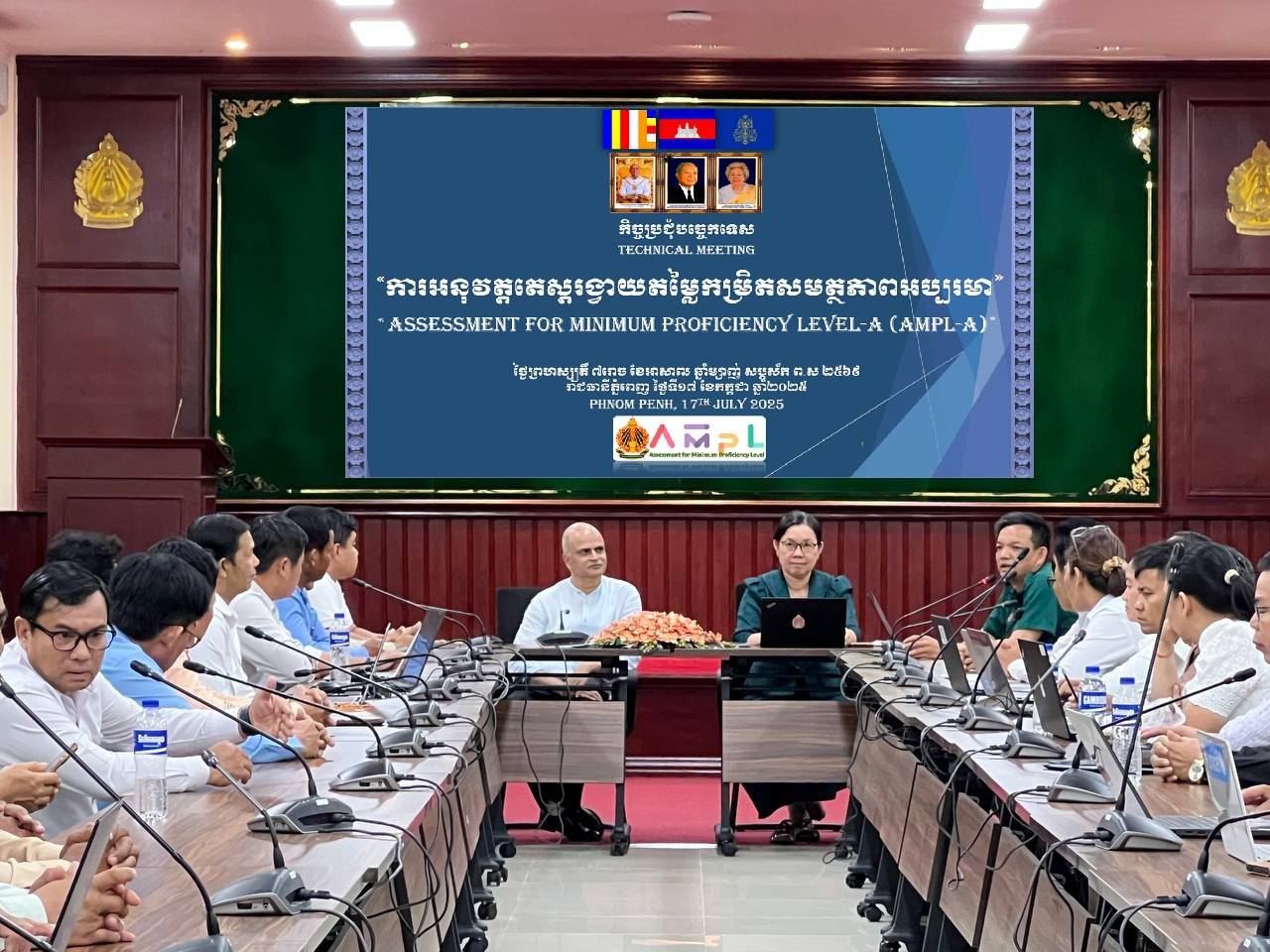
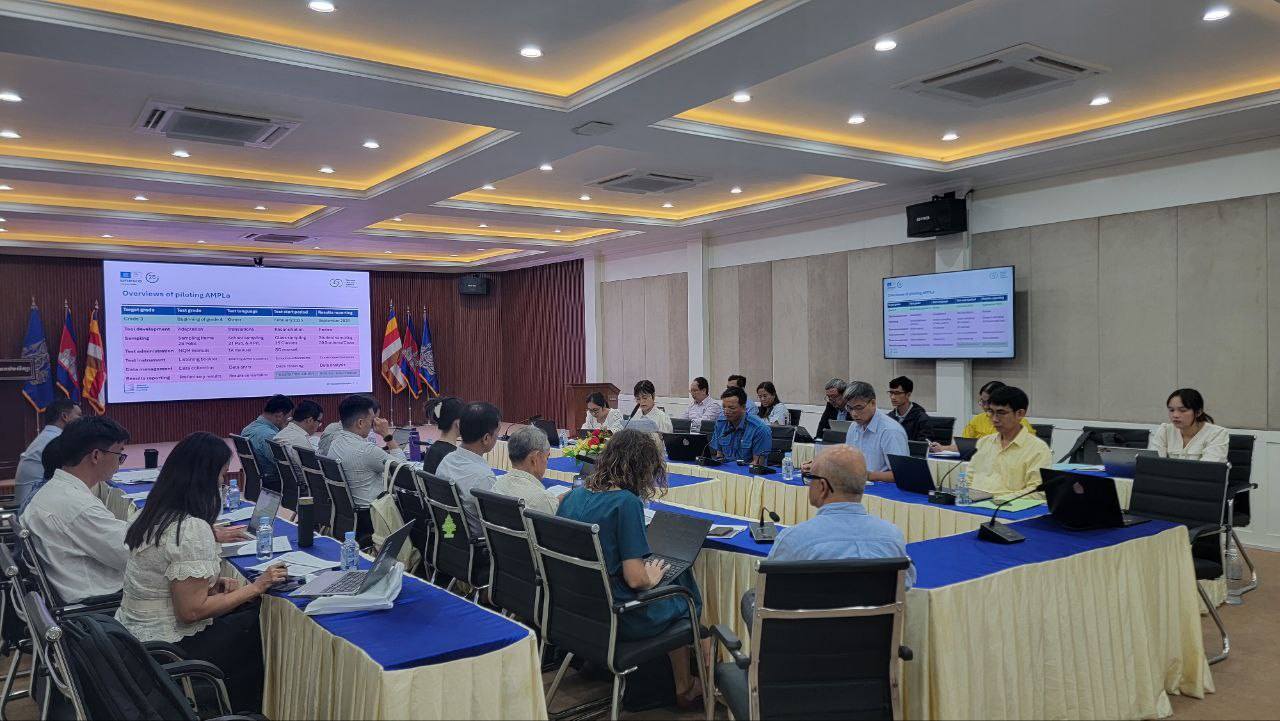
Photo Credits: Ministry of Education, Youth and Sport (MoEYS)
The AMPL-a tool serves several key purposes:
In Cambodia, the pilot focused on Grade 3 (beginning of grade 4) students, representing the end of lower primary education. Conducted in February 2025, the pilot included a purposive sample of 25 schools—21 public and 4 private. One class per school was selected, with 25–30 students participating in each, resulting in a total sample size of over 700 students.
The assessment consisted of four test booklets, each containing 34 mathematics items, 31 reading items, and 19 audio-based items to assess listening comprehension. Preliminary results indicate that the AMPL-a items are well-suited to produce SDG4.1.1a indicator. Students found the assessment clear and engaging, while teachers recognized its value in measuring learning outcomes and informing improvements in teaching practices.
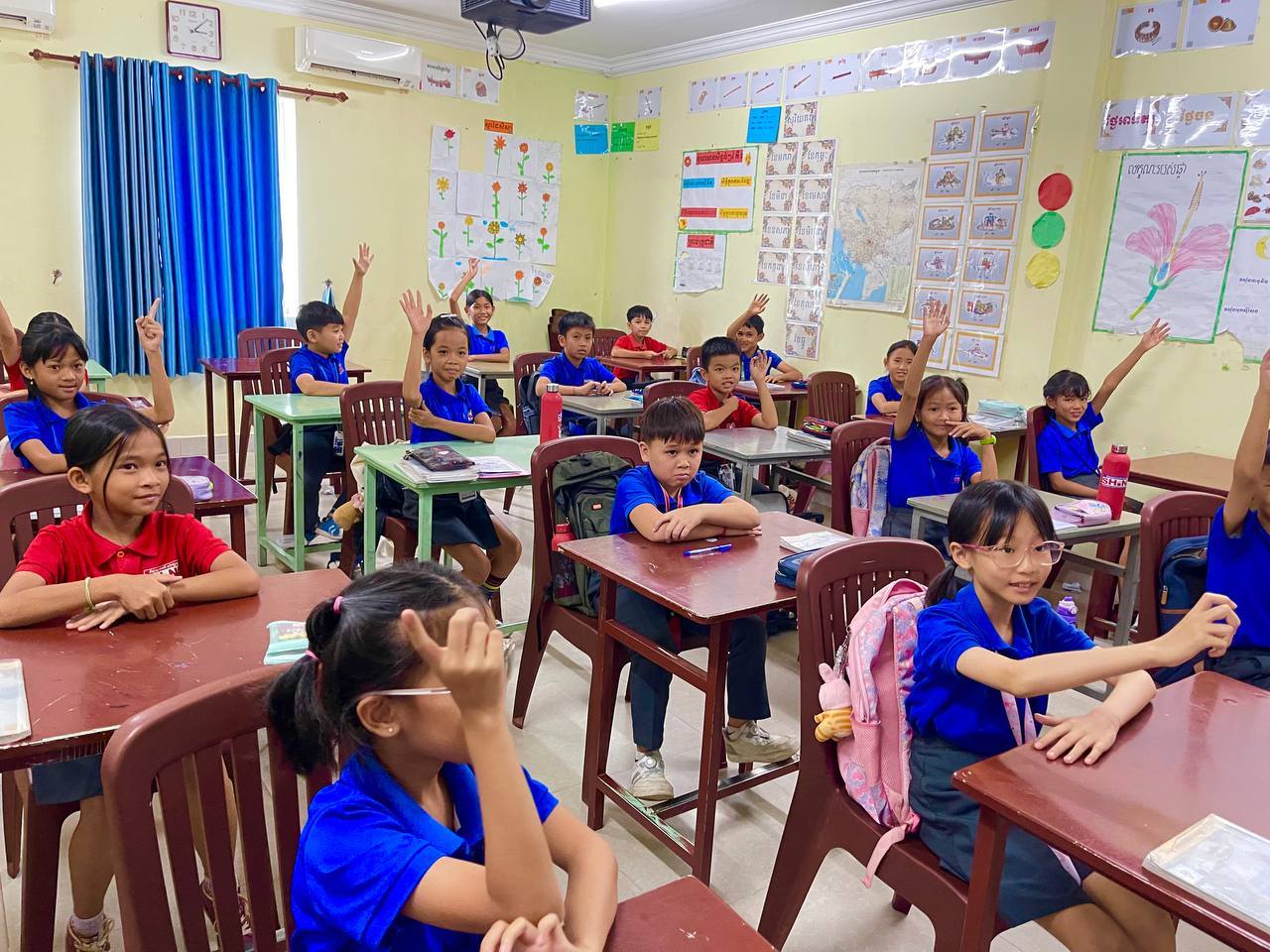
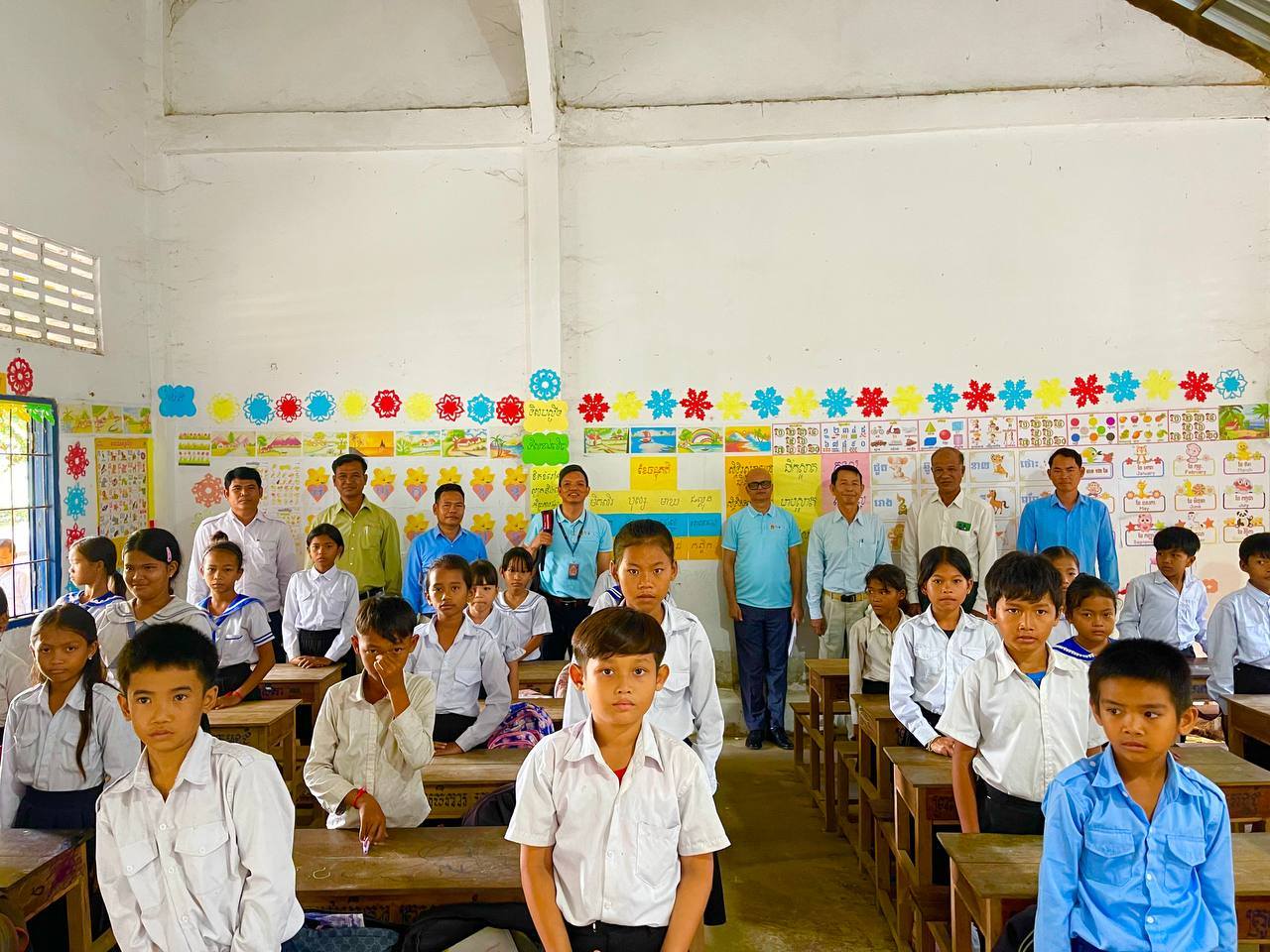
Photo Credits: Ministry of Education, Youth and Sport (MoEYS)
AMPL-a contributes significantly to Cambodia’s national learning assessment system by enabling the country to independently or with limited support from outside, conduct both national and international assessments. This empowers countries like Cambodia to measure student performance against regional and global benchmarks.
A cornerstone of AMPL’s implementation is its comprehensive capacity-building approach, which combines formal training with hands-on experience. Education officials, provincial coordinators, and school coordinators gain practical skills through active involvement in the assessment process.
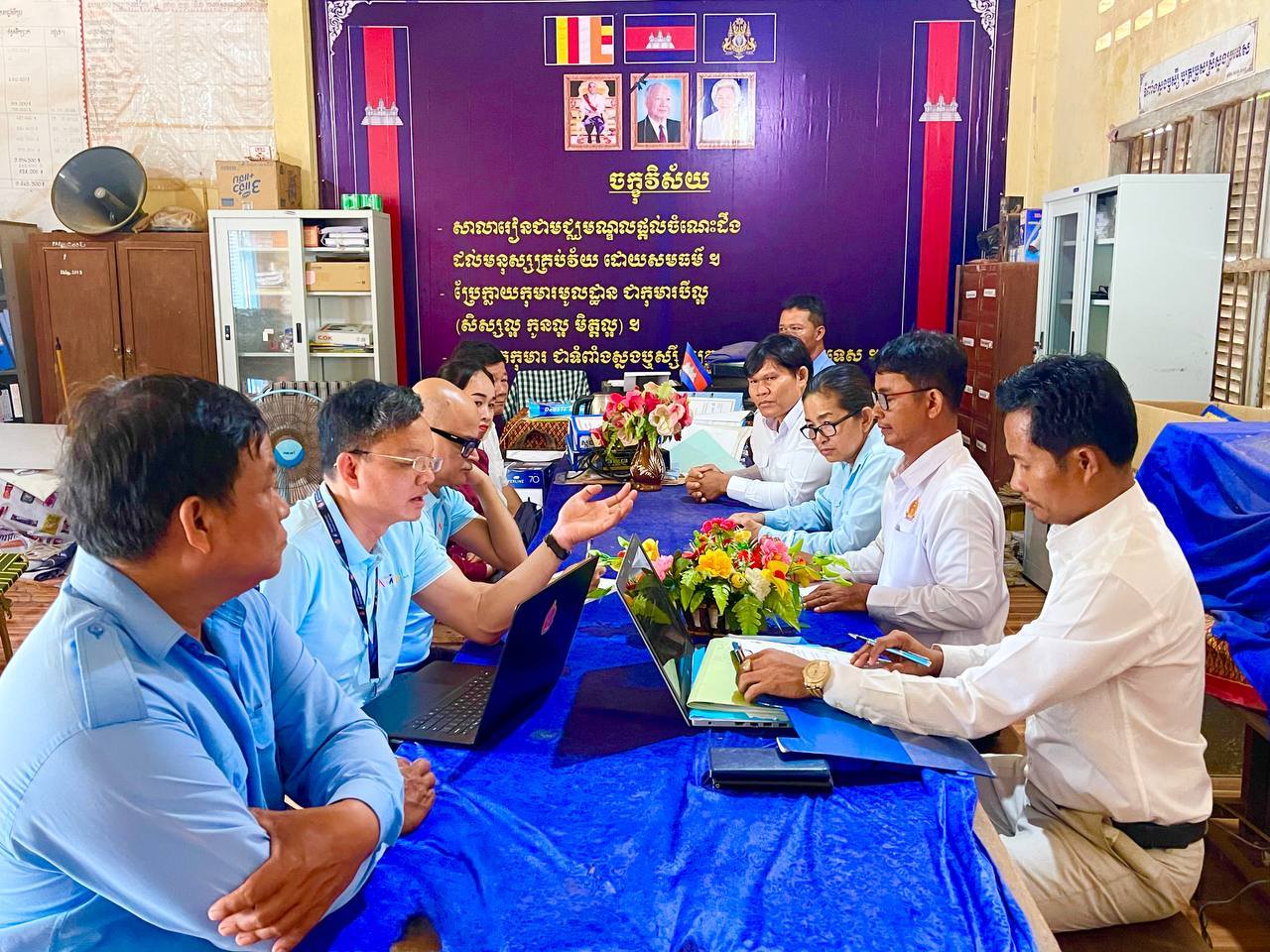
Photo Credits: Ministry of Education, Youth and Sport (MoEYS)
As of June 2025, 24 countries have participated in or are actively engaged with the AMPL initiative, with the tools made available in Arabic, English, French, Hindi, Khmer, and Urdu. By the end of 2025, the tools are expected to be available in at least six additional languages — Dutch, Nepali, Sindhi, Sinhala, Spanish and Tamil.
AMPL is being implemented both as a standalone assessment and as part of national and regional assessments. The UIS has implemented AMPL in close cooperation with partners such as CONFEMEN, where it was integrated into the regional PASEC assessment in Francophone Africa under the MILO project in 2022, as well as with the World Bank. This flexibility supports diverse country contexts and reinforces national ownership of learning assessments.
By strengthening national assessment systems, AMPL plays a pivotal role in helping countries monitor educational quality and make evidence-based decisions to improve learning outcomes for all children.
Learn more about AMPL: https://ampl.uis.unesco.org/